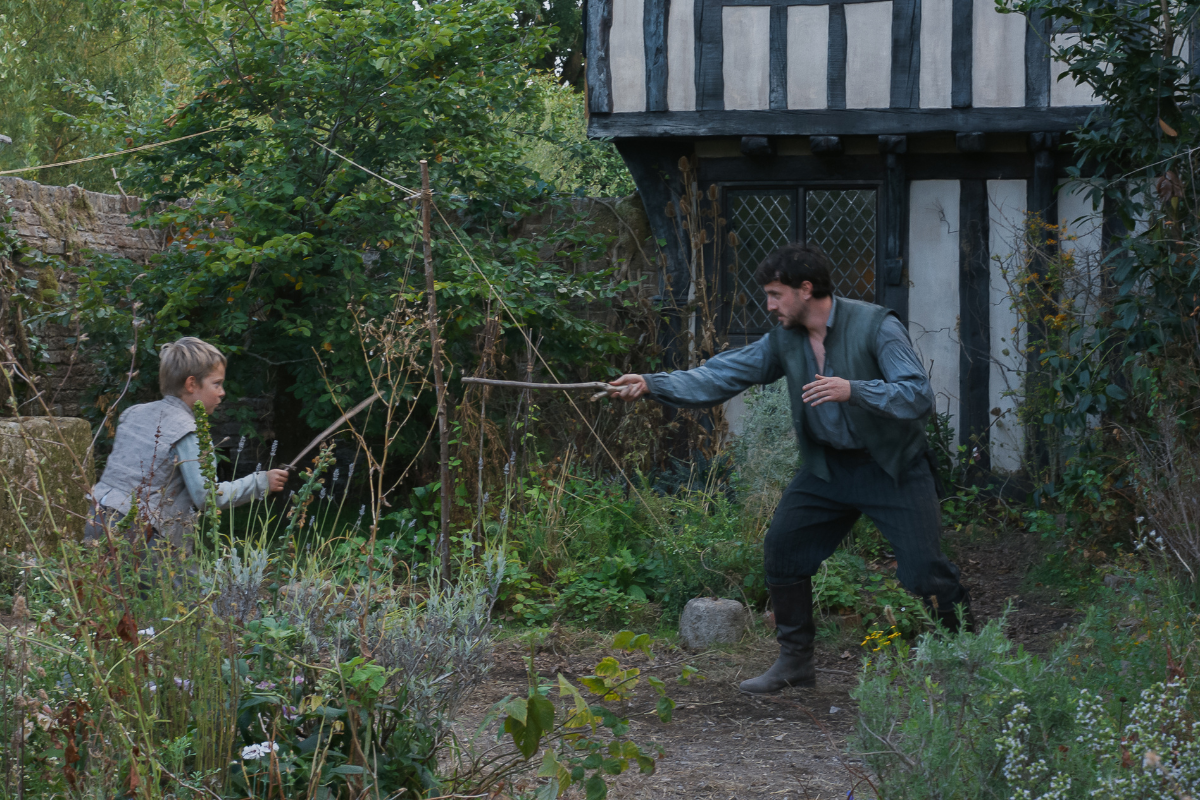The Voice-Over Lie
I hear the “no voice-over” dictum repeated all the time — from veteran screenwriters, from screenwriting teachers and gurus, and from the myriad screenwriting books and articles out there – and yet it seems as if voice-over is being used more than ever these days.
I was talking recently with Maureen Green, the former editor of Script, and she was complaining about what she called “the voice-over lie”: the notion that even though the general consensus in the screenwriting community seems to be that writers should never, ever, ever use voice-over in their screenplays (ever) – because it's a cheap gimmick used to cover up holes in a narrative or in story logic; because it's a lazy way to present exposition or develop character; because it's redundant and often just describes to us what we are already watching on screen; etc., etc. – they use it all the time anyway, often inventing elaborate rationalizations justifying why their script is the one exception to the “no voice-over” rule.
Maureen definitely has a point: I hear the “no voice-over” dictum repeated all the time -- from veteran screenwriters, from screenwriting teachers and gurus, and from the myriad screenwriting books and articles out there – and yet it seems as if voice-over is being used more than ever these days (it's hard to find an independent film that doesn't include at least a bit of v.o. and it's also turning up more and more in mainstream studio features lately as well). It's certainly appeared in the majority of the spec and sample scripts that I have read in recent years.
So the question is, if everybody's doing it, why does everyone keep insisting that it shouldn't be done? To answer that question, I think you first have to ask why the use of voiceover has become so verboten in the first place? My first thought is that it's because in most artistic endeavors, a technique is usually only noticeable when it doesn't work -- when it does, it tends to become part of a seamless whole and so doesn't stand out. Therefore, I think we usually only become conscious of voice-overs when they're bad. Hence – we get the impression that all voice-overs are bad. And, Lord knows, many of them are.
The most notorious bad voice-over in cinema history is probably Harrison Ford's monotone rambling in Blade Runner, a terribly written piece that adds nothing to the movie except to tack on an out-of-nowhere happy ending that pretty much betrays everything that comes before it. Another example of truly awful narration is Vicky Christina Barcelona, in which the sole purpose of the film itself seems to be to give viewers something to look at while they listen to an unending voice-over by an unseen narrator (who is totally unrelated to the story) that tells us everything that the characters are thinking and feeling, seemingly to save Woody Allen the trouble of actually having to dramatize his story or flesh out his characters. I'm also not a fan of the v.o. in Forrest Gump: where Tom Hanks's cutesy-pie narration attempts (but fails) to give this silly comic-strip of a movie a weight and profundity it otherwise lacks. Other noticeable v.o. stinkers include Dune, Prince of Tides, Titanic, Dances with Wolves and 21.
These examples and hundreds like them are truly terrible and it makes sense that no one would want to emulate them or encourage others to emulate them. However, to insist that the technique should therefore never be used at all overlooks the many films that have employed the technique to splendid effect: How much less effective would Taxi Driver be without Travis Bickle's mad musings about the need for a cleansing rain? Would A Christmas Story be as funny without Jean Shephard's cockeyed commentary on Ralphie's holiday misadventures? And a film noir classic would have lost a great deal of its cynical edge without Fred MacMurray's voice-over in Double Indemnity. Other great uses of the technique: Kiss Kiss Bang Bang, Goodfellas, Sunset Boulevard, Stand by Me, Raising Arizona, L.A. Story, Memento, L.A. Confidential, All About Eve, The Third Man, Adaptation, and Dexter.
So, apart from recognizing the sheer silliness of stating that an artist should never use a specific technique (imagine telling Van Gogh “You can't use yellow.”), what are we to take from all this? How about the notion that, like any technique, voice-over is neither good nor bad – it's how you use it that matters? These are generalizations, of course, but voice-over seems to work best when it adds an additional dimension to the narrative (think of the dueling narrations in About a Boy that gives the Hugh Grant and Nicholas Hoult's characters' divergent interpretations of the story's events and so elaborates on the attitude conflict being dramatized in the story) or enhances the characterizations of the film's people in ways that are consistent with the way they are being portrayed onscreen (such as Malcolm McDowell's sympathetic, heroic view of his dastardly deeds in A Clockwork Orange, a perspective that extends perfectly the character's extreme sociopathy) or elaborates on the mood or feel of the piece (in the way that Morgan Freeman's voice over reflections do in The Shawshank Redemption).
It seems to work less well when it has to carry the burden of the storytelling such as in The Lady from Shanghai (after all, if I want to listen to a story, I can simply turn on the radio), tries to give the characters dimensions not reflected in the onscreen portrayals (a good example of this is Apocalypse Now, where the voice-over describes a fascination and growing identification with the mad Colonel Kurtz on the part of Captain Willard that is not reflected in Martin Sheen's flat, expressionless performance), or attempts to give the film a depth or resonance that the narrative itself doesn't earn (such as in Sex and the City).
Ultimately, when it comes to using voice-over or any other technique, there's really only one dictum you need to follow: Write well. If you do that, then everything else will work out fine. - Ray Morton
Thanks to John Patrick Nelson, Alison Star Locke, Andrew Morton, Joe Romeo, Angel Orona and, of course, Maureen Green, for their input into this piece.
Ray Morton is a writer and script consultant. His many books, including A Quick Guide to Screenwriting, are available online and in bookstores. Morton analyzes screenplays for production companies, producers, and individual writers. He can be reached at ray@raymorton.com. Twitter: RayMorton1







